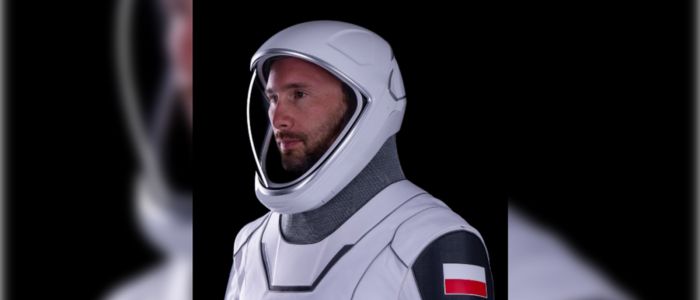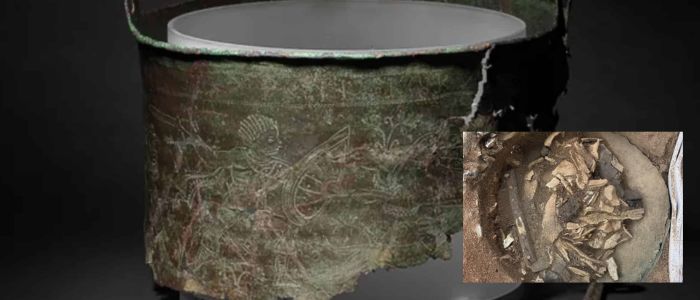A novel way to treat snakebites has been discovered through an unlikely collaboration between a scientist and a man who spent nearly 20 years self-immunizing himself by exposing his body to snake venom. Immunologist Jacob Glanville identified Tim Friede, a self-taught snake handler who had injected himself with venom from some of the deadliest snakes on the planet — culturing himself to snake venom as if it were poison ivy and even permitting snakebites at one point — all to gradually build his immune system.
Turning Risk into Research
Knowing Friede’s story and detailed record-keeping for 17 years had impressed Glanville, he realized that there was something unique he could make out of the story as a new kind of antivenom. Friede contributed a 40-milliliter blood sample that became the basis for research conducted under Glanville and Peter Kwong, a professor of the medical sciences at Columbia University. The researchers extracted antibodies from Friede’s blood and combined them with a venom-inhibiting drug to develop an antivenom tested in mice.
This new compound, named using two specific antibodies (LNX-D09 and SNX-B03) and a small molecule drug known as darapladib, neutralized the venom of 19 different species of snake. LNX-D09 provided protection against six species alone. Protection was extended to three more with the addition of varespladib. The addition of the last one, SNX-B03, made the effective period to 19. Mice that received the cocktail were completely protected against 13 of the species and partially protected (20–40%) against the other six.
A Breakthrough in Treating Snakebites?
The traditional way to make antivenom is to inject animals like horses with venom, then collect the antibodies that develop in their blood — a process that can be labor-intensive, imprecise and can trigger extreme reactions in people. This new antivenom, however, employs human antibodies, which could minimize adverse reactions and lead to better results.
Snakebites kill some 200 people worldwide each day and cause 400,000 cases of disability per year, primarily in the global South. Snakebite was added to the World Health Organization’s list of neglected tropical diseases in 2017.
Friede, who abandoned self-vaccinations in 2018 following a number of close calls, is now employed by Centivax, Glanville’s biotech company. The treatment hasn’t been tested in humans yet, but researchers are optimistic.
The study looked only at snakes like cobras and mambas, not viperids like rattlesnakes. The group hopes to study other antibodies for wider protection. The group’s researchers also aim to start field trials of the antivenom in Australia, administering it in veterinary clinics to dogs bitten by elapid snakes.
This breakthrough could result in a universal or dual-form antivenom, and change the way snakebites are treated globally.
PREV NEWS
NEXT NEWS


China is on the forefront of sodium-ion battery deployment, and electric scooters is being used as the flagship product. Scooters like these, enabled by sodium batteries rather than the conventional lithium-ion and lead-acid models, are becoming popular, helping to usher the technology into the mainstream.

A Polish astronaut has captured the attention of space enthusiasts after revealing the advanced spacesuit he will wear during his upcoming journey to space. The modern design of the suit and the significance of the mission have created a wave of excitement online.

Two previously unknown pages from a 13th-century tale of Merlin in Old French and of Arthur in Guinevere’s court were discovered by researchers at Cambridge University Library. Written in Old French, these leaves were discovered bound into another book as its cover. The fragment is from the “Suite Vulgate du Merlin,” a sequel to the Arthurian legend. Roughly three dozen copies of this sequel are believed to exist.

At Sutton Hoo in England, where the seventh-century Anglo-Saxon “ghost ship” burial is located, archaeologists have published a substantial amount of information on a mysterious sixth-century object, the Bromeswell bucket. First identified as fragments in 1986 and excavated more completely in 2012, the bucket has puzzled scientists with its high-resolution North African hunting scene that includes warriors, animals, and weapons. Experts believe it was created in Antioch (in what is now Turkey) under the Byzantine Empire and was moved to Britain a century later.

Google has unveiled its most sophisticated AI video tool to date — Veo 3. The tool can produce a strikingly realistic video that is virtually indistinguishable from human-created content. Its realism is both thrilling and troubling to the many who think that fact and fiction are increasingly blurred online.

BY Iwo Mazur

BY Oskar Malec

BY Oskar Malec

BY Oskar Malec

BY Oskar Malec
Uwielbiamy pliki cookie — zarówno te jadalne, jak i cyfrowe, które ulepszają Twoje wrażenia z przeglądania. Pomagają nam one udoskonalać funkcjonalność naszej witryny i Twoje ogólne wrażenia. Podstawowe i funkcjonalne pliki cookie są niezbędne do prawidłowego działania witryny i nie można ich wyłączyć. Ponadto używamy plików cookie w celu optymalizacji wydajności („komfort”) i wyświetlania spersonalizowanych reklam („marketing”), na co potrzebujemy Twojej zgody. Kliknij „Zezwól na wszystkie”, aby wyrazić zgodę na przetwarzanie danych. Uwielbiamy pliki cookie — zarówno te jadalne, jak i cyfrowe, które ulepszają Twoje wrażenia z przeglądania. Pomagają nam one udoskonalać funkcjonalność naszej witryny i Twoje ogólne wrażenia z przeglądania. Podstawowe i funkcjonalne pliki cookie są niezbędne do prawidłowego działania witryny i nie można ich wyłączyć. Ponadto używamy plików cookie w celu optymalizacji wydajności („komfort”) i wyświetlania spersonalizowanych reklam („marketing”), na co potrzebujemy Twojej zgody. Kliknij „Zezwól na wszystkie”, aby wyrazić zgodę na przetwarzanie danych.
Twoja zgoda obowiązuje również na mocy art. 49 (1) (a) RODO, co oznacza, że Twoje dane mogą być tymczasowo przetwarzane poza EOG, w tym w USA. W takich przypadkach wysokie europejskie standardy ochrony danych mogą nie być w pełni zagwarantowane, a władze USA mogą uzyskać dostęp do Twoich danych bez skutecznego środka prawnego. Możesz wycofać swoją zgodę w dowolnym momencie.
PrywatnośćWarunki korzystania z serwisu
Możesz zarządzać swoimi preferencjami dotyczącymi plików cookie lub wycofać zgodę w dowolnym momencie za pośrednictwem naszych ustawień plików cookie. Aby uzyskać więcej informacji, zapoznaj się z naszą Polityką prywatności.